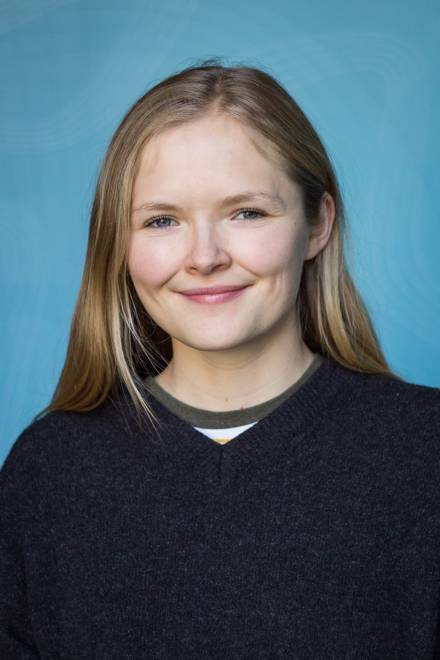Social media, online speech, misinformation, fact-checking, online content moderation, patterns and determinants of migration, survey methodology

Mathilde Bålsrud Mjelva
Doctoral Researcher
Email: matmje@prio.org
Interests and experience
Doctoral researcher at PRIO, focusing on the impact of online misinformation on attitudes, and the use of fact-checking and online content moderation as correctives to misinformation.
I have previously worked as research assistant at PRIO on two migration-related projects: QuantMig and FUMI. My work on these projects focused particularly on determinants and drivers of migration and migration aspirations through the use of survey data and systematic literature reviews.
In 2020, I submitted my master's thesis in political science, titled "Rainfall variability and violent, state-based conflict: A machine learning approach to estimate context specificity".
Projects
Recording Explosive Munitions for the Analysis of War Crimes (REMWAR)
Communication and relations in the age of social media
Increasing National Resilience in the Age of Disinformation: Recommendations for Enhanced Preparedness Through Collective Psychological Defence
Prejudice and Political Action (PREACT)
Consequences of the Invasion of Ukraine for the Global South
QuantMig: Quantifying Migration Scenarios for Better Policy
Latest publications
Systematic literature reviews in migration studies: approaches to context-sensitive synthesis
Journal article in Comparative Migration Studies
Beyond Hate Speech: Online Rumors and Out-Group Resentment in Divided Societies
Journal article in Comparative Political Studies
Conceptualizing and Measuring Conflict-Related Determinants of Migration
Journal article in Journal of Immigrant and Refugee Studies
Migration drivers across time and space: selected examples
Book chapter in From Uncertainty to Policy: A Guide to Migration Scenarios
Surveys on migration aspirations, plans and intentions: a comprehensive overview
Journal article in Open Research Europe
Conflict-related determinants of migration
QuantMig Background Paper
Consequences of the Invasion of Ukraine for Migration from the Global South
PRIO Policy Brief
Survey instruments and survey data on migration aspirations
QuantMig project deliverable
Systematic review of determinants of migration aspirations
QuantMig deliverable
Rainfall Variability and Violent, State-Based Conflict: A Machine Learning Approach to Estimate Context Specificity
Master thesis
Latest news
PRIO migration project selected as 'success story'
The project Quantifying Migration Scenarios for Better Policy (QuantMig) is featured by the European Commission as a success story of impactful research.
Virtual book launch of 'From uncertainty to policy: A guide to migration scenarios' on International Migrants Day
Can migration be forecasted in today's unpredictable world? How can policymakers and scholars navigate inherent uncertainty, with robust and realistic models?
Data on Migration Desires Come Mainly from High-Income Countries
Scientists who study migration often use surveys about people's aspirations, desires, or plans to migrate. New work by PRIO researchers shows that these valuable data are unevenly distributed, often inaccessible, and poorly documented when they are used.
How can we best ask about migration plans and desires?
Over the past few decades, thousands of people have responded to survey questions about their thoughts and feelings about possibly migrating.
What makes people want to migrate?
Thousands of people have responded to surveys with questions about their wishes or plans for migration and researchers have analyzed the data to identify the drivers.
Mathilde Bålsrud Mjelva Successfully Defends Master's Thesis
This week Mathilde Bålsrud Mjelva defended her thesis "Rainfall variability and violent, state-based conflict: A machine learning approach to estimate context specificity", and achieved top marks.





